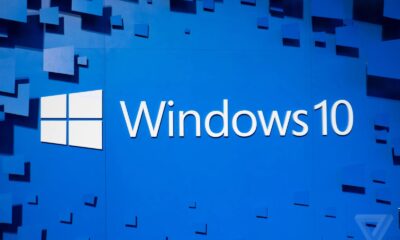News
Gauteng’s R344 Million Microsoft Debt Sparks Alarm as New Mega-Contract Raises Eyebrows

Gauteng’s R344 Million Microsoft Debt Sparks Alarm as New Mega-Contract Raises Eyebrows
A province reliant on digital systems is now battling a digital debt crisis and the numbers are only part of the story.
Gauteng may be the economic heart of South Africa, but behind the scenes the province is barely keeping the lights on digitally. This week, it emerged that the Gauteng Department of e-Government owes Microsoft a staggering R344 million in unpaid licence fees, a debt linked to its 2022–2025 agreement that was never properly settled.
The revelation came from the DA’s e-Government spokesperson, Michael Waters, following a tense portfolio committee meeting. According to Waters, the department blamed its ballooning arrears on “late invoices” and “untimely billing.” But the DA argues that the real-world consequences go far deeper than accounting disputes.
“When IT systems crash, hospitals lose patient files, schools can’t operate, and departments grind to a halt,” Waters said.
“This isn’t just about money, it’s about safety, continuity, and service delivery.”
A Debt That Once Hit R631 Million
At its worst, Gauteng’s Microsoft debt climbed to R631 million. Partial payments have chipped away at the total, but not nearly fast enough to restore credibility or stability.
The twist?
Despite owing hundreds of millions, the department has already signed a new three-year licence contract with Microsoft, beginning in 2025:
-
Value: $53.2 million (approximately R915.9 million)
-
Increase from previous contract: 33%
This means Gauteng will pay R228 million more for Microsoft licences in the next cycle, even though the province hasn’t finished paying for the last one.
For many residents, especially those who’ve waited hours for hospital files or battled faulty school systems, the news feels like another reminder of what they call the province’s “IT chaos.”
Government Silent, Microsoft Mum
When contacted, Microsoft stuck to its global script.
“Commercial terms are confidential,” the company told Newsday.
The Gauteng Department of e-Government, however, did not respond at all a silence that has only heightened public frustration.
IT Costs Have Exploded Over the Years
Gauteng’s own 2024 annual report shows just how dramatically the province’s digital spending has soared:
-
R537 million on computer services in 2020/21
-
R823 million in 2022/23
-
R1.01 billion in 2023/24
The department lists multiple expenses behind the jump from Microsoft Defender security tools to archiving platforms and email protection systems.
Yet despite the investments, many frontline government services still struggle with outdated technology and constant downtime.
A Pattern of Microsoft-Related Mishaps
Gauteng’s digital headaches didn’t start with this latest R344 million debt.
2021: A R318 Million Blunder
The department mistakenly paid $21 million instead of R21 million, losing R6.8 million due to exchange rate fluctuations, even after the refund was processed.
2016: Schools Left Stranded
Public schools reported they couldn’t install new Microsoft software because the provincial government had failed to provide updated licences. Principals described the situation as “crippling.”
For many observers, the current debt feels like part of a long-standing pattern: poor administration, weak oversight, and a concerning dependence on a single tech supplier.
DA Demands Answers And A Plan
Waters says the DA has now written to Gauteng MEC for Finance, Lebogang Maile, requesting:
-
A detailed breakdown of the debt
-
A list of affected departments
-
Accountability for who failed to pay
-
A contingency plan to prevent service shutdowns
His warning was blunt:
“A modern government cannot function without digital systems.
Lesufi’s administration is putting everything from healthcare to education at risk.
Gauteng cannot afford a digital blackout.”
The phrase “digital blackout” has since gained traction on social media, where Gauteng residents, already exhausted by water cuts and load shedding, are now jokingly (and anxiously) asking if they should prepare for an “IT shedding schedule.”
Meanwhile, Microsoft Is Deepening Its Footprint in SA
In a striking contrast to Gauteng’s debt turmoil, Microsoft is simultaneously expanding its presence in South Africa.
In March 2025, Microsoft President Brad Smith stood alongside President Cyril Ramaphosa to announce a R5.4 billion investment into new data centre infrastructure adding to its existing R20.4 billion footprint.
“AI needs data centres the way electricity needs power stations,” Smith declared, explaining that the investment will help South Africa build its own AI-driven economy.
The timing of this announcement, juxtaposed with Gauteng’s unpaid bills, has left many South Africans asking:
How can a province struggling to pay for its current licences afford a nearly R1 billion new contract?
A Province at a Crossroads
Digital transformation was meant to modernise Gauteng, making government faster, more transparent, and more efficient. Instead, the province now finds itself stuck between two realities:
-
An urgent need to upgrade its systems, especially as cyber threats increase.
-
A growing inability to pay for the digital tools it depends on.
The consequences aren’t theoretical.
They affect real people, patients waiting for files, teachers unable to log into systems, departments that freeze when software licences expire.
Until the province explains what went wrong and how it plans to prevent service collapse, the fear of a “digital blackout” will continue to loom over South Africa’s most populous province.
{Source: Newsday}
Follow Joburg ETC on Facebook, Twitter , TikTok and Instagram
For more News in Johannesburg, visit joburgetc.com



























